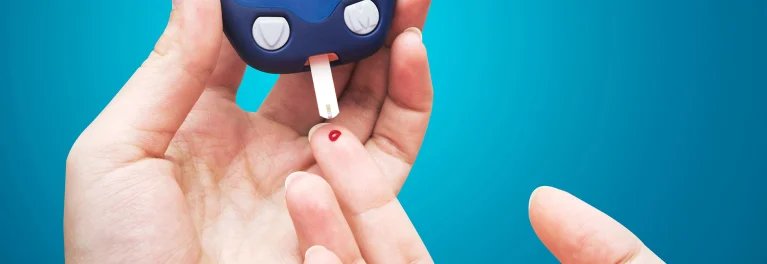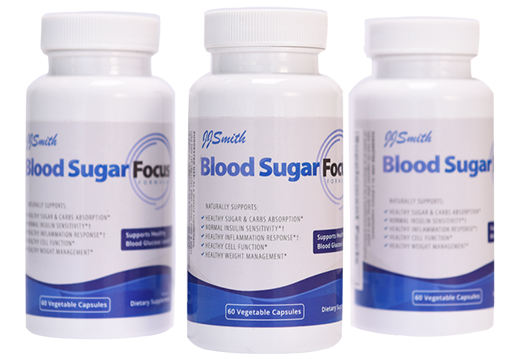Learn how blood sugar impacts your weight, energy levels, and health
When most people think of health and wellness, they think about exercise, sleep, and a balanced diet. However, there is more to good health than eight hours of sleep, fruits and vegetables, and 30 minutes of exercise a day. The missing link is blood sugar.
Inconsistent blood sugar regulation and high blood sugar spikes makes it extremely difficult for you to lose weight, maintain steady energy levels, and to achieve overall good health.
So, yes, you may be eating five servings of fruits and vegetables, whole grains, and healthy protein sources but if these foods are causing your blood sugar to spike, you might as well be eating cake every day.
It’s important to understand that most foods and drinks you consume are converted to sugar which is then metabolized and converted to energy. It is blood sugar that gives you the fuel or energy to work, raise your family, exercise, socialize with friends, and live an active life.
However, when your blood sugar level is too high, your body responds by making you feel lethargic, tired, and hungry. And this ultimately results in a range of health conditions with long-term adverse impacts.
When you can maintain healthy blood sugar levels, avoiding spikes, you have more energy, it’s easier to lose weight, and maintain whole-body health and wellness.
Why are Blood Sugar Levels Important?
So many people are living with dangerously high blood sugar levels without realizing the health impacts. This can be attributed to believing it’s normal in our busy lifestyles to feel tired or lethargic, to struggle to lose weight (especially as we get older), and to need a 3 p.m. sugary snack to get through the day.
Chronically high blood sugar levels can cause people to develop type 2 diabetes and a range of diabetes complications including heart disease, blindness, kidney failure, and neuropathy. The good news is, you can make dietary and lifestyle adjustments to prevent blood sugar spikes, reducing your risk of developing type 2 diabetes or hyperglycemia.
Understanding Blood Sugar
As I mentioned earlier, most of the food and drinks you consume are converted to blood sugar and this is what gives you energy. However, to really understand the implications of high blood sugar we need to dig deeper into the science of blood sugar.
The American Diabetes Association explains the connection between blood sugar and energy:
When you eat, your body breaks food down into sugar and sends it into the blood. Insulin then helps move the sugar from the blood into your cells. When sugar enters your cells, it is either used as fuel for energy right away or stored for later use.
Ideally, you consume the right balance of carbohydrates, fats, and proteins to fuel you through-out the day with a little leftover for stored energy. However, many people eat too many foods high in carbohydrates, making it hard for the body to convert and use this excess sugar. When this happens you become insulin resistant, forcing excess sugar into your bloodstream where it is not absorbed or processed correctly.
This causes your blood sugar levels to spike and triggers trickle-down health impacts including fluctuating energy levels, weight gain, hyperglycemia, and type 2 diabetes.
What Are the Signs and Symptoms of High Blood Sugar?
Please understand consistently high blood sugar levels are dangerous! Do not ignore the signs and symptoms of high blood sugar. Make sure you discuss these blood sugar signs and symptoms with your doctor to ensure you are not developing hyperglycemia or type 2 diabetes.
The signs and symptoms of mildly high blood sugar include:
- Frequent peeing. When your blood sugar levels are high, your kidney starts working overtime to remove this sugar, forcing you to pee frequently.
- High levels of thirst. Because you’re peeing more frequently, you naturally become dehydrated and constantly thirsty.
- Fatigue. When your body cannot process insulin correctly, you’re not able to get the energy you need, causing you to feel tired. Often when people feel fatigued after eating a large meal or a sugary snack, this is a sign that your blood sugar levels are elevated.
- Increased hunger. When glucose (sugar) cannot enter your bloodstream correctly, you become low on energy, signaling your body that you need to eat so you can give your body the sugar it needs to create energy. This results in a secondary response causing your body to convert this excess sugar into fat, making it hard for you to lose weight.
If you or someone you know is experiencing these signs and symptoms of moderate to severely high blood sugar, please consult a doctor immediately:
- Blurry vision
- Excessive thirst
- Light-headedness
- Hot, dry, flushed skin.
- Drowsiness, restlessness, or struggles to stay awake
- High heart rate and weak pulse
- Deep and rapid breathing
- Stomach pain, vomiting, or no appetite
- Very strong, fruity breath.
6 Tips to Maintain Blood Sugar Regulation
The mind-body connection with your blood sugar, energy levels, health, and weight loss are often overlooked. Consider this typical example of stress-eating and what it does to your mind and body.
When you’re feeling stressed or anxious, you turn to your favorite ice cream or donut. Eating this carbohydrate-rich food causes a huge dose of sugar to enter your bloodstream, resulting in an insulin spike, and high blood sugar symptoms. This starts a vicious cycle of fatigue, hunger, weight gain, stress, and anxiety. It can be very difficult to recognize this cycle, let alone stop it from becoming part of your day.
You can control stress eating, the afternoon slump, and blood sugar spikes with my six tips to maintain consistent blood sugar levels:
- Reduce the amount of fast-acting carbohydrates you eat. There are two types of carbohydrates: fast- and slow-acting. Fast-acting carbohydrates are the foods that give you an instant energy spike, such as soda, white bread, or candy. Slow-acting carbohydrates like brown rice, whole wheat bread or large flake oats give you a slow and steady energy release, preventing your blood sugar from spiking.
- Exercise regularly. Along with helping you build muscle and calm your mind, exercise does wonders for your insulin levels. Regular exercise trains your body and muscles to use blood sugar for energy and fuel, preventing insulin resistance.
- Get your daily fiber. Too many of us are not getting enough fiber. Fiber is essential for good digestion, easy pooping, and slowing sugar absorption. A high-fiber diet helps you regulate your blood sugar levels and makes you feel full, helping you to manage your appetite and prevent overeating.
- Drink lots of water. Your kidneys rely on water to flush extra blood sugar out of your body when you pee. When you’re dehydrated, you stop peeing, causing a buildup of blood sugar which causes blood sugar spikes and weight gain. I aim to drink one gallon of lukewarm lemon water during the day.
- Manage your stress levels. All of us stress eat. And when we stress eat, we like to eat carbohydrate- and sugar-rich foods. This causes blood sugar spikes, fatigue, hunger signals, more eating, and weight gain.
- Take a supplement proven to promote healthy blood sugar levels. Blood Sugar Focus naturally reduces glucose absorption and production. This proprietary blend of herbs and minerals supports healthy blood sugar levels, helping you to lose weight, maintain consistent energy levels, and provides specific support for pre-diabetes and diabetes.
Blood Sugar Focus naturally supports:
I’m excited to be telling you about my new product – Blood Sugar Focus. My team and I developed and tested this product as a response to the increase in health problems connected to high blood sugar.
Healthy carbohydrate and sugar absorption.
Normal insulin sensitivity.
Healthy inflammatory responses.
Healthy cell function.
Healthy weight management.
Read more about Blood Sugar Focus and how it helps you lose weight, achieve consistent blood sugar levels, and sustained energy through-out the day.


